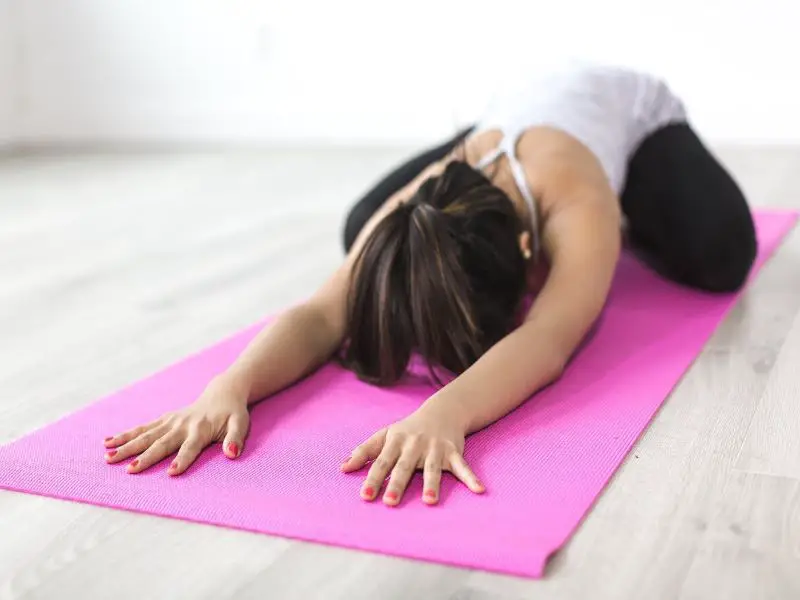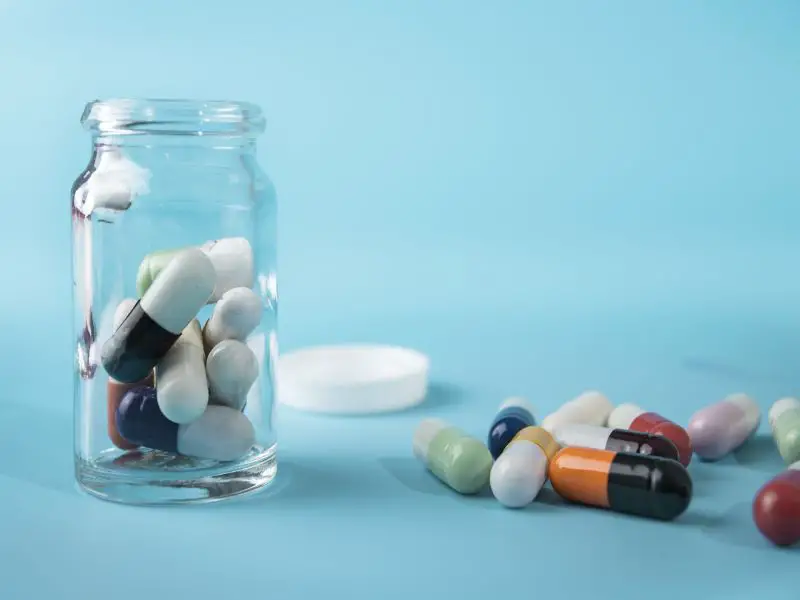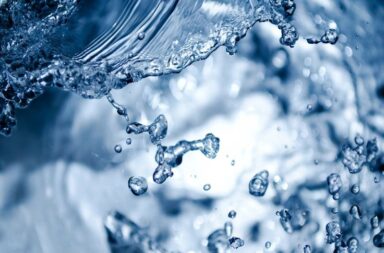If you have an interest in health and fitness, then you are probably aware of the fact that muscle recovery is crucial for muscle growth. There are many ways to provide optimal recovery, with diet being one of them. In this article, we will be answering the question “what vitamins help with muscle recovery?”.
Vitamin A, D, and B-vitamins can all help to improve muscle recovery. However, barring vitamin D, it is fairly easy to get your recommended daily intake of these vitamins via diet. There is no real need to consume additional vitamins.
Now that you know the answer, we can take a more in-depth look at what vitamins are useful for muscle recovery, and we can take a look at some common misconceptions about diet and recovery.
What Vitamins Help with Muscle Recovery?
It could be argued that all vitamins help with muscle recovery, leading a healthy life is difficult when you are deficient in any vitamin or mineral. This is why a nutritional diet is so important. However, there are three specific vitamins (or two vitamins and one vitamin complex) that are particularly beneficial for muscle recovery.
- Vitamin A
- Vitamin D
- B-Vitamins
Vitamin A
The body uses a process called muscle protein synthesis to build stronger and larger muscles. Without this process, your body would actually break down muscle mass (catabolism) and you would lose size and strength. There are many factors that affect protein synthesis, with dietary protein being the most well-known.
Vitamin A plays a crucial role in protein synthesis, not only does it help to utilise dietary protein, but it can help to create (synthesize) new protein. The more protein you consume (for muscle recovery and growth) the more vitamin A you need to utilise.
Vitamin A also plays an important role in testosterone production, which is important for females trying to build muscle and absolutely crucial for males. Naturally supporting and increasing testosterone levels is paramount to muscle recovery.
Most people get more than enough vitamin A from their diet, so if you are a regular gym-goer then it is unlikely that you would need to take additional steps to hit your vitamin A targets. But athletes and bodybuilders require higher levels of vitamins and minerals due to the amount of training they perform.
Vitamin D
Several studies have confirmed that having higher levels of vitamin D can lead to significantly faster recovery times for muscles. A 2016 study found that high vitamin D concentrations alongside high calcium intake helped to reduce muscle fatigue. Another study found that high vitamin D levels led to faster muscle recovery after intense exercise.
Vitamin D levels are also important for testosterone production, with many studies showing that men with higher vitamin D levels also had higher testosterone. As mentioned before, testosterone plays a vital role in muscle protein synthesis and recovery.
Unlike vitamin A, it is quite common for people to have low vitamin D levels. Particularly during winter in countries nearer the extreme north or south of the globe. Vitamin D can be supplemented in a number of ways. It can be done via diet (fish and fortified foods), via spending more time in the sunlight, or you can take vitamin D supplements to top up your levels.
B-Vitamins
B-vitamins is an umbrella term for 8 separate vitamins (confusingly numbered 1-12). These are:
- Thiamine (B1)
- Riboflavin (B2)
- Niacin (B3)
- Pantothenic Acid (B5)
- Pyridoxine (B6)
- Biotin (B7)
- Folic Acid (B9)
- Cobalamin (B12)
As you might suspect, such a large range of vitamins provide a wide range of benefits, many of these benefits can impact recovery from exercise. B-vitamins help with hormone production, muscle tone, energy levels, red blood cell production, and cell health. B-vitamins can also support testosterone production in men.
Their specific advantage for muscle recovery is their ability to metabolise amino acids which is another crucial process in muscle protein synthesis.
It is rare for people to be deficient in B-vitamins as they are found in many staple foods. Dairy, meat, fish, leafy green vegetables, whole grains, nuts, and nutritional yeasts. But athletes may become deficient, or people on very-low-calorie diets. In this case, a vitamin supplement may be of some use.
What Helps with Muscle Recovery?
Ensuring that you are not deficient in B vitamins as well as vitamins A and D is very important for muscle recovery, but it isn’t the only factor that affects the recovery rate. You also have the following:
- Rest – A day off in between workouts is very important for muscle recovery
- Nutrition – Increasing protein, creatine (via supplementation), and carbohydrates (to replace glycogen) is crucial.
- Sleep – 8 hours (or more) each night will do more for muscle recovery than almost anything else
- Active Rest – Gentle exercise can be surprisingly effective as it helps to increase blood flow to muscles, removing toxins and delivering nutrients.
- Hydration – rehydrating after a tough workout can make a huge difference to reducing muscle pain and fatigue.
For best results, you want a combination of a nutritious diet, well-scheduled rest days, high-quality sleep, and active rest (yoga, walking, foam rolling, swimming).
What is the Best Supplement for Muscle Recovery?
As we have already established, it is better to search for foods that are high in the vitamins that you need than to use multivitamins. But that does not mean that supplements can’t be effective. Multivitamins have their uses, as do the following supplements:
- Protein powder (whey, pea, rice etc) – An inexpensive and efficient source of protein, perfect as a pre or post-workout snack, and great for muscle repair.
- Tart cherry juice – The scientific community is getting very excited about the recovery and performance benefits associated with tart cherry juice. Expect to find this ingredient in post-workout supplements soon.
- Creatine – Increasing your creatine monohydrate intake is highly effective at increasing performance during a gym workout, but it can also speed up recovery when taken consistently.
- Caffeine – Caffeine is known to reduce the perception of pain and tiredness, great for soothing sore muscles. This is a more temporary solution, but perfect if you need to train the day after a hard workout and need some recovery methods immediately.
Is it Bad to Take Vitamins after Working Out?
This is a common question among gym-goers, and the answer is that taking a multivitamin immediately after a workout is going to have very little effect on your recovery either way. There are no real benefits to doing so (as opposed to having your multivitamin first thing in the morning) and any downsides are barely going to register.
That being said, there does appear to be a downside to taking vitamins C and E immediately after a workout. According to a 2014 study in the Journal of Physiology, vitamin C and E supplementation can affect protein signalling after a strength training session, slowing down recovery slightly.
Our advice would be to ensure that your vitamin C and E intake is sufficient to avoid a deficiency but to try to ingest these vitamins before a workout, or better yet with your daily meals.
What Vitamins Help with Muscle Recovery? Final Thoughts
In many ways, all vitamins help with muscle recovery, because it is very difficult to fully recover while consuming a low-quality diet. The specific vitamins that help are B-vitamins, vitamin A, and vitamin D. Aiming to find these vitamins via your diet will see a marked improvement in recovery time. Using a multivitamin can also work, but results may not be as great.
Other supplements such as creatine, protein powder, and specific post-workout supplements can also help to speed up your recovery. As can recovery methods such as sleeping more, moving more, and scheduling your workouts and rest days better.
Frequently Asked Questions
What are the Best Vitamins for Muscle Soreness?
There aren’t really any good vitamins that you can take to reduce muscle soreness. The best options would be sleeping more, some active recovery (walking), Epsom salt baths (hot water), and some caffeine.
What are the Best Vitamins for Muscle Growth?
B-Vitamins, vitamin A, and vitamin D are all quite effective at supporting muscle growth, but if your diet is good enough then they probably don’t need to be supplemented. Unless its winter and you’re struggling to get vitamin D through diet or sun exposure.
What are the Best Vitamins for Muscle Pain?
There aren’t really any vitamins that you can take to reduce muscle pain. Again, just focus on rest and traditional recovery techniques such as hot baths and active rest.
Should You Get Your Vitamins From Supplements?
Ideally, you want to get your vitamins from foods that are rich in them. They are absorbed better this way, and foods high in vitamins and minerals often have other benefits. If your diet does not have enough vitamins and minerals and you refuse to change it then the next best option would be greens powders, followed by multivitamin supplements.





